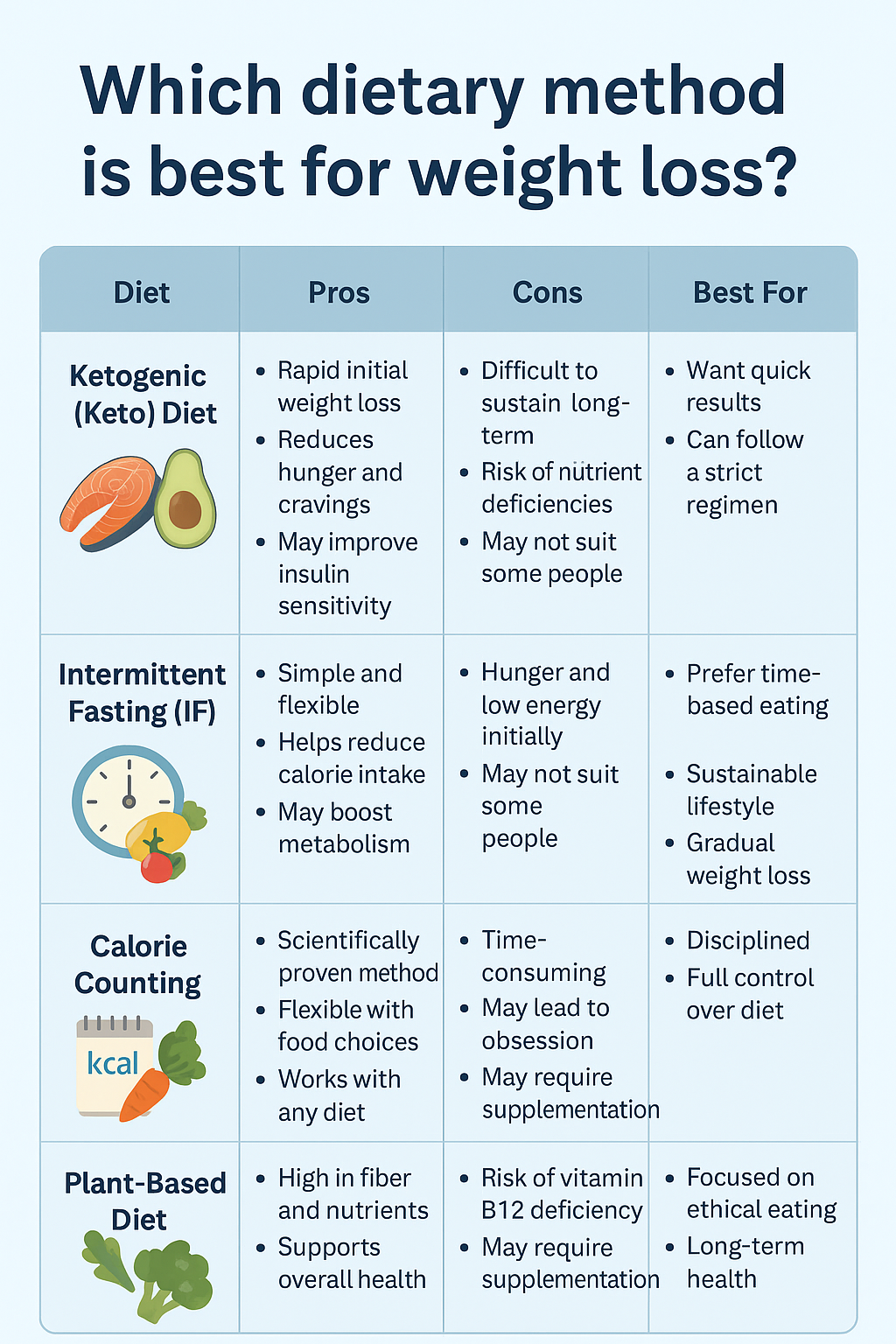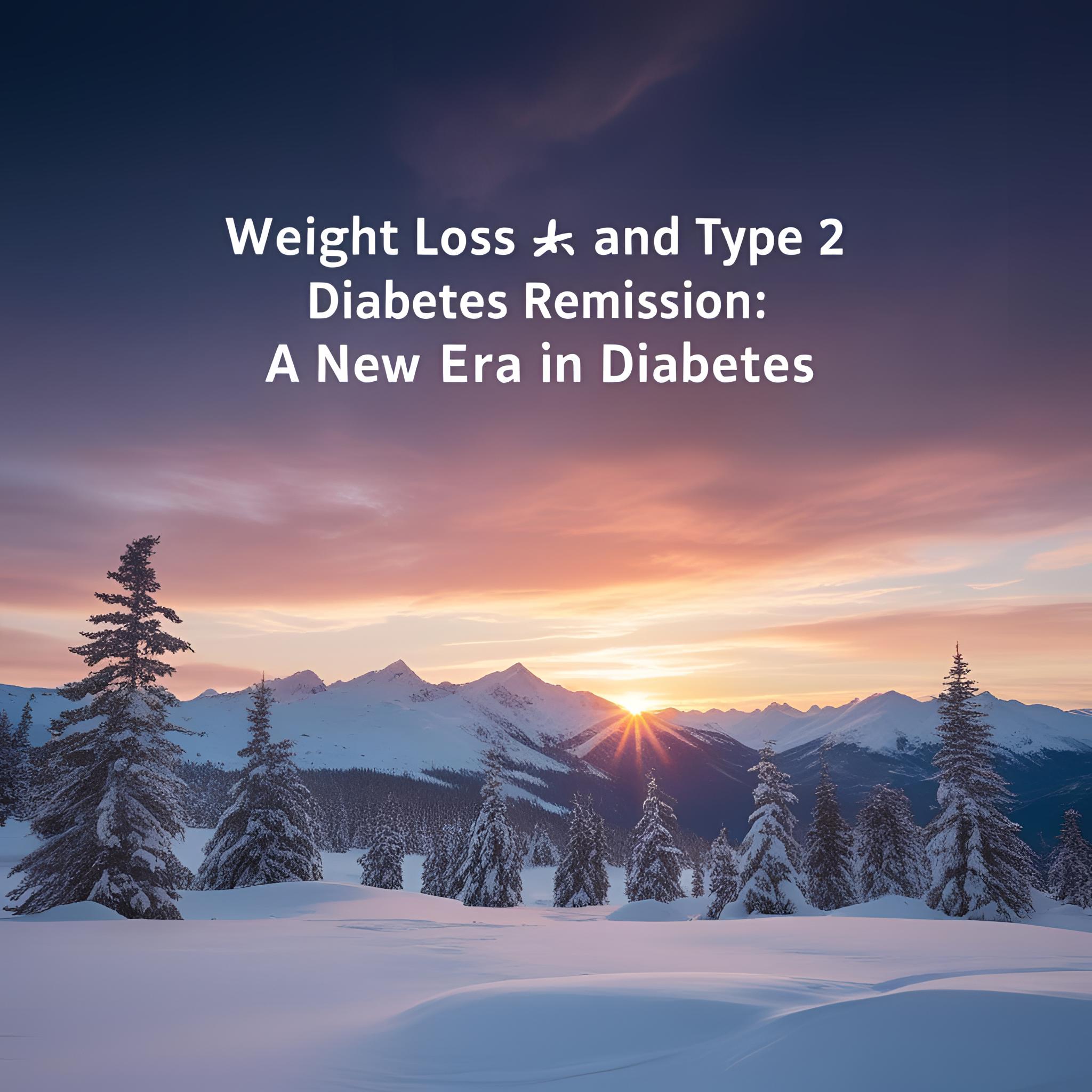Introduction
With countless weight loss diets trending every year, choosing the best dietary method can be overwhelming. From low-carb to plant-based to intermittent fasting, each plan promises effective results. But the truth is — no one-size-fits-all approach exists. The best diet for weight loss is the one that is effective, sustainable, and fits your lifestyle.
In this blog, we’ll compare the most popular dietary methods for weight loss, their benefits, drawbacks, and which one may be right for you.
1. Ketogenic (Keto) Diet
The keto diet is a high-fat, low-carb eating plan that puts your body into a fat-burning state called ketosis.
Pros:
- Rapid initial weight loss
- Reduces hunger and sugar cravings
- May improve insulin sensitivity
Cons:
- Difficult to sustain long-term
- Risk of nutrient deficiencies
- Not ideal for people with kidney or liver issues
Best For: People who want quick results and can stick to a strict, low-carb regimen.
2. Intermittent Fasting (IF)
Intermittent fasting cycles between periods of eating and fasting, such as the 16:8 method (16 hours fasting, 8 hours eating window).
Pros:
- Simple and flexible
- Helps reduce calorie intake naturally
- May boost metabolism and insulin sensitivity
Cons:
- Hunger and low energy initially
- May not suit people with blood sugar issues
Best For: People who prefer time-based eating over food restriction.
3. Mediterranean Diet
This diet emphasizes whole grains, lean proteins, healthy fats (like olive oil), fruits, and vegetables. It is more of a lifestyle than a diet.
Pros:
- Heart-healthy and balanced
- Easy to follow long-term
- Rich in nutrients and fiber
Cons:
- Slower weight loss compared to keto or IF
- Requires careful portion control for weight loss
Best For: People who want sustainable, long-term health improvements along with gradual weight loss.
4. Calorie Counting
This method focuses on monitoring and reducing calorie intake based on your body’s needs and weight loss goals.
Pros:
- Scientifically proven method
- Flexible with food choices
- Works with any dietary preference
Cons:
- Time-consuming
- Can lead to obsession over numbers
Best For: People who are disciplined and want full control over their diet.
5. Plant-Based Diet
A diet rich in whole, plant-based foods like vegetables, legumes, fruits, whole grains, and nuts while avoiding or limiting animal products.
Pros:
- High in fiber and nutrients
- Supports heart and digestive health
- Environmentally friendly
Cons:
- Risk of vitamin B12 and iron deficiency
- May require supplementation
Best For: People focused on ethical eating and long-term health benefits.
How to Choose the Best Diet for You
When selecting a dietary method, ask yourself:
- Can I follow this long-term?
- Does this diet suit my medical conditions?
- Will I enjoy the food choices available?
- Does it align with my lifestyle and schedule?
The most effective weight loss method is one that creates a calorie deficit while being sustainable, balanced, and enjoyable.
Final Thoughts
There is no universal “best” diet — the right one depends on your goals, preferences, and health status. Whether you choose keto, intermittent fasting, Mediterranean, or calorie tracking, consistency is key. Always consult with a healthcare provider or registered dietitian before starting any new diet, especially if you have underlying health conditions.
Remember: The best diet is not just the one that works, but the one you can stick with.



